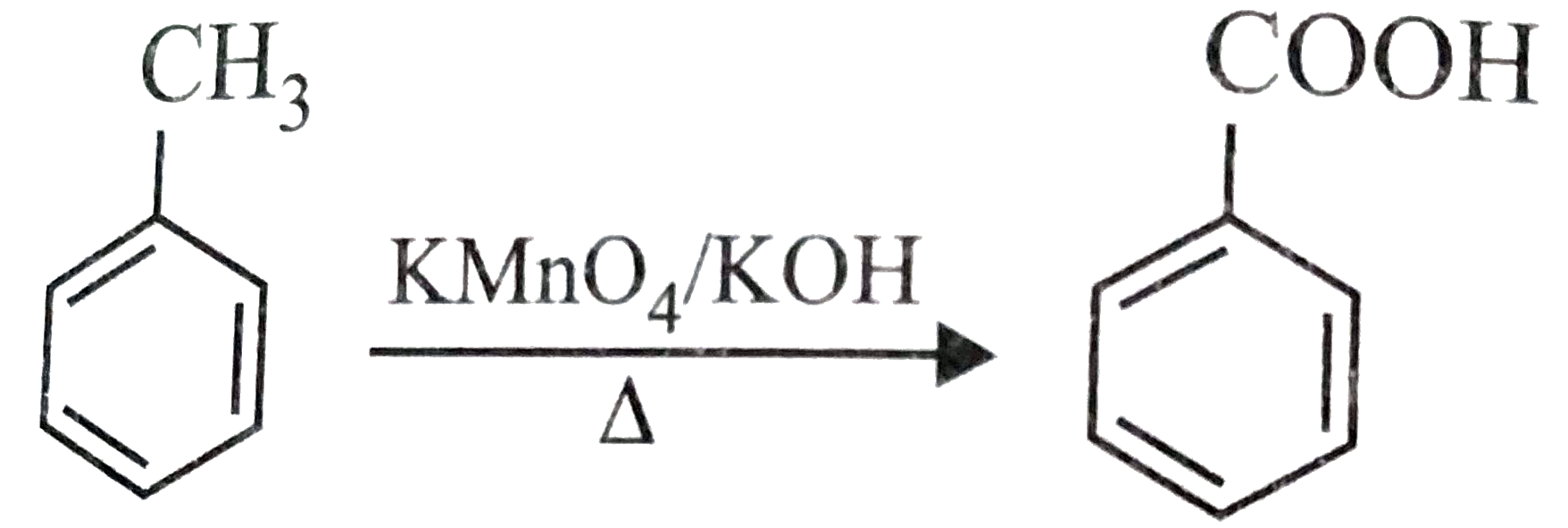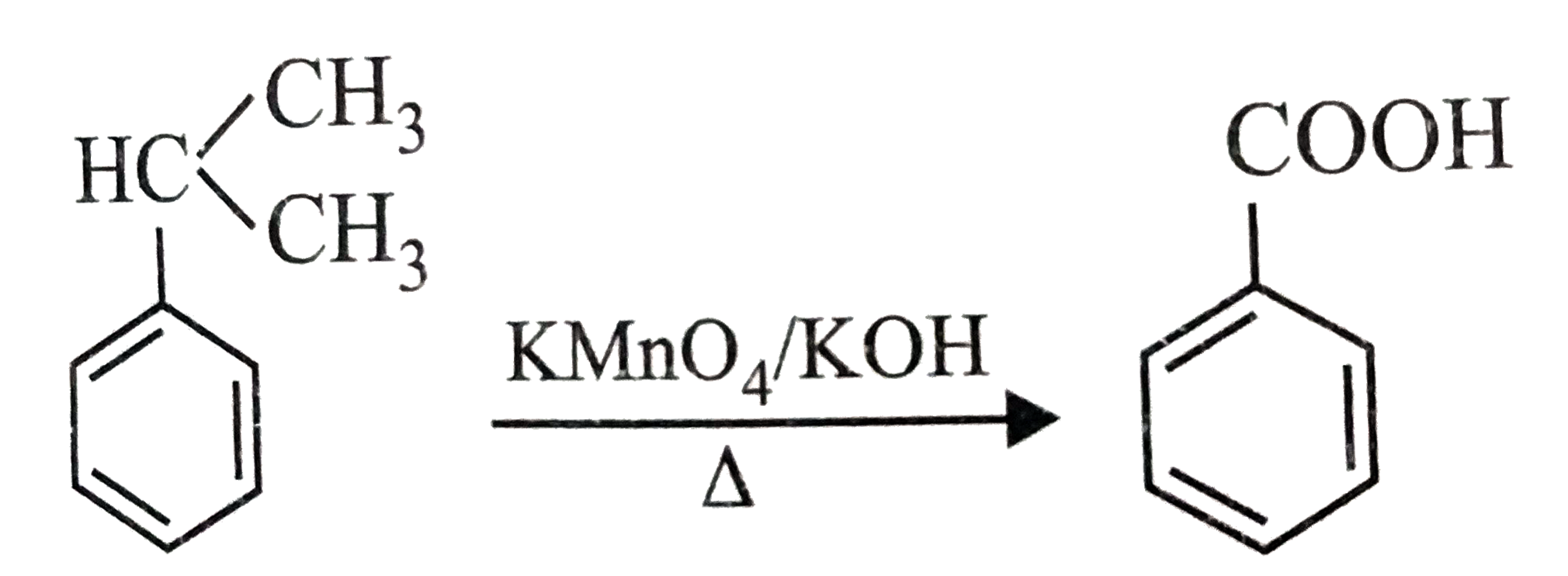Which of the following reactions does not lead to formation of an alkanol ?
RCOOR+KOH→
R2O+H2Odil/H2SO4−−−−−−→Δ
RCOR'+2HNA+ethanol−−−−−−−→
(RCO)2O+H2O→
The correct Answer is:D
To determine which of the following reactions does not lead to the formation of an alkanol (alcohol), we will analyze each reaction step by step.
Step 1: Analyze the First Reaction
Reaction: RCOR + KOH (Hydrolysis of Ester)
- Explanation: Here, RCOR represents an ester. When an ester undergoes hydrolysis in the presence of potassium hydroxide (KOH), it breaks down to form a carboxylic acid (RC(=O)OH) and an alcohol (ROH).
- Conclusion: This reaction produces an alcohol, so it is not the answer.
Step 2: Analyze the Second Reaction
Reaction: ROR + H2O (Hydrolysis of Ether)
- Explanation: In this case, ROR represents an ether. When ether undergoes hydrolysis (typically in the presence of an acid), it can yield two molecules of the same alcohol if both R groups are identical or two different alcohols if the R groups are different.
- Conclusion: This reaction also produces alcohol, so it is not the answer.
Step 3: Analyze the Third Reaction
Reaction: RCO + H2 (Reduction of Ketone)
- Explanation: Here, RCO represents a ketone. When a ketone undergoes reduction (for example, using sodium in ethanol), it can form a secondary alcohol.
- Conclusion: This reaction produces an alcohol, so it is not the answer.
Step 4: Analyze the Fourth Reaction
Reaction: RCO2R' (Anhydride Hydrolysis)
- Explanation: In this case, RCO2R' represents an anhydride. When an anhydride undergoes hydrolysis, it typically yields two molecules of the corresponding carboxylic acid (RC(=O)OH) and does not produce any alcohol.
- Conclusion: This reaction does not produce an alcohol, making it the correct answer.
Final Answer
The reaction that does not lead to the formation of an alkanol is the hydrolysis of an anhydride (RCO2R').
---
Reaction: RCOR + KOH (Hydrolysis of Ester)
- Conclusion: This reaction produces an alcohol, so it is not the answer.
Reaction: ROR + H2O (Hydrolysis of Ether)
- Conclusion: This reaction also produces alcohol, so it is not the answer.
Reaction: RCO + H2 (Reduction of Ketone)
- Conclusion: This reaction produces an alcohol, so it is not the answer.
Reaction: RCO2R' (Anhydride Hydrolysis)
- Conclusion: This reaction does not produce an alcohol, making it the correct answer.
The reaction that does not lead to the formation of an alkanol is the hydrolysis of an anhydride (RCO2R').
Topper's Solved these Questions
- ALCOHOLS, PHENOLS & ETHERSBOOK - VMC MODULES ENGLISHCHAPTER - ALCOHOLS, PHENOLS & ETHERSEXERCISE - Impeccable
100 Videos
- ALCOHOLS, PHENOLS & ETHERSBOOK - VMC MODULES ENGLISHCHAPTER - ALCOHOLS, PHENOLS & ETHERSEXERCISE - Enable
100 Videos
- ALCOHOLS, PHENOLS & ETHERS BOOK - VMC MODULES ENGLISHCHAPTER - ALCOHOLS, PHENOLS & ETHERS EXERCISE - IN-CHAPTER EXERCISE - L
10 Videos
- ALDEHYDES,KETONES & CARBOXYLIC ACIDS BOOK - VMC MODULES ENGLISHCHAPTER - ALDEHYDES,KETONES & CARBOXYLIC ACIDS EXERCISE - IN-CHAPTER EXERCISE-M
10 Videos
Similar Questions
Knowledge Check
Which of the following reactions does not occur ?
A B
B C
C D
D
Which of the following reactions does not take place?
AC2H5Br+KNO2→C2H5−O−N=O+KBrB CC2H5Br+AgCN→C2H5NC+AgBrDC2H5Br+KCN→C2H5NC+KBr
CC2H5Br+AgCN→C2H5NC+AgBrDC2H5Br+KCN→C2H5NC+KBr
Which of the following reactions does not yield an amine?
View SolutionWhich of the following reactions does not take place?
View SolutionWhich of the following reactions does not take place?
View SolutionWhich of the following reaction does not take place ?
View SolutionWhich of the following reaction leads to the formation of secondary alcohol?
View SolutionWhich of the following will not lead to the formation of an alkyl halide?
View Solution
